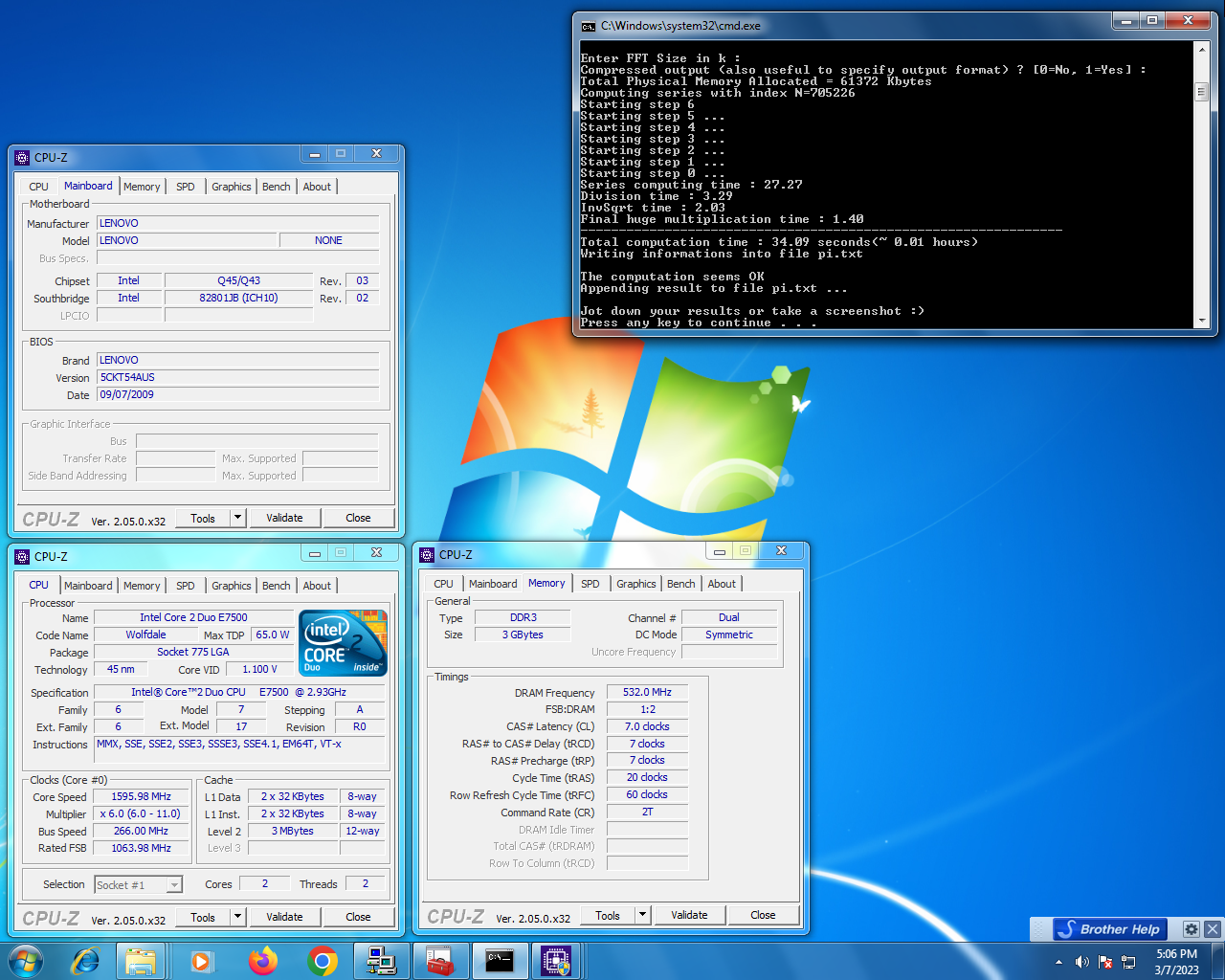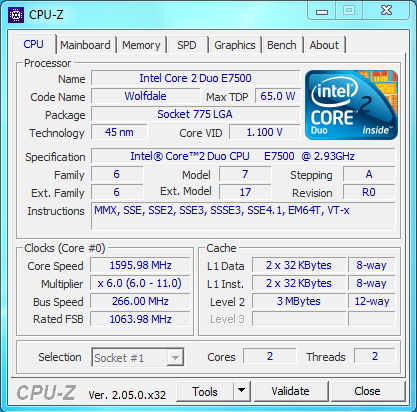PiFast score 34sec 90ms with a Core 2 Duo E7500
Wednesday, 08 March 2023 19:12 | Update at 2 years ago
Media Gallery
Screenshot

Device, Setup, etc

URL
https://hwbot.org/submission/5220745https://www.facebook.com/hakimnu.id/posts/pfbid0BT2YkwKYMPT1wPLkfApiAQ1Nsu9484CBGmNMFBsibxJgv3dHR18siT7gCJPDENwYl
Information Detail
Hardware: Intel Core 2 Duo E7500
Specs:CPUID : Intel(R) Core(TM) 2 Duo CPU E7500 @ 2.93GHz
Architecture : x86
Codename : Wolfdale
L3 Cache : -
Clock : 2.93GHz
Core/Thread : 2/2
TDP : 65W
Technology : 45nm
Socket : LGA775
IGPU : -
See more specification...
Software: PiFast
Score: 34sec 90ms
About: PiFastPiFast is a classic benchmark application designed to measure processor performance in performing intensive mathematical calculations, particularly in calculating the value of pi (π) to millions of digits. This benchmark is renowned for being lightweight, fast to run, and highly accurate in reflecting the capabilities of single-thread CPUs, making it a popular choice among overclockers and system performance testers since the early days of processors.
In PiFast testing, the system is tasked with calculating the value of pi using a fast algorithm based on high-precision mathematics. The faster the time achieved, the higher the performance of the tested CPU. Since PiFast runs on a single core (single thread), this benchmark is highly relevant for measuring the efficiency of a single core in both modern and older processors.
Features and Advantages of PiFast:
- Very lightweight and does not require installation.
- Ideal for testing system stability after overclocking.
- Focuses on single-thread performance, an important indicator in gaming and lightweight application performance.
- Provides test results in seconds, suitable for quick and repetitive testing.
- Compatible with various Windows versions, including older systems.
Although it is quite outdated compared to modern benchmarks, PiFast is still used today as a simple and effective testing tool, especially among the overclocking community and hardware enthusiasts who want to validate performance without running heavy benchmarks.
The Intel Core 2 Duo E7500 is a desktop processor released in 2009, based on the Wolfdale architecture, which is part of Intel’s Core 2 Duo family. It features 2 cores and 2 threads, running at a clock speed of 2.93 GHz, and operates with a 1066 MHz Front Side Bus (FSB).
Manufactured using 45nm process technology, the E7500 has a TDP of 65W, which was considered energy-efficient for its time. However, this processor does not support Hyper-Threading or Turbo Boost, meaning its performance is limited to strictly single-threaded and basic dual-threaded applications.
In terms of modern computing standards, the Core 2 Duo E7500 is outdated and performs well below current entry-level processors. Despite this, it can still be useful in legacy systems for light workloads such as basic web browsing, office documents, and 480p–720p video playback, especially when paired with a lightweight operating system.
* Not Avaiable
